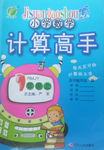题目内容
I called Jim last night, ________ he didn’t answer the phone.
A.for B.and C.but D.or
练习册系列答案
 智能训练练测考系列答案
智能训练练测考系列答案 计算高手系列答案
计算高手系列答案
相关题目
题目内容
I called Jim last night, ________ he didn’t answer the phone.
A.for B.and C.but D.or
 智能训练练测考系列答案
智能训练练测考系列答案 计算高手系列答案
计算高手系列答案